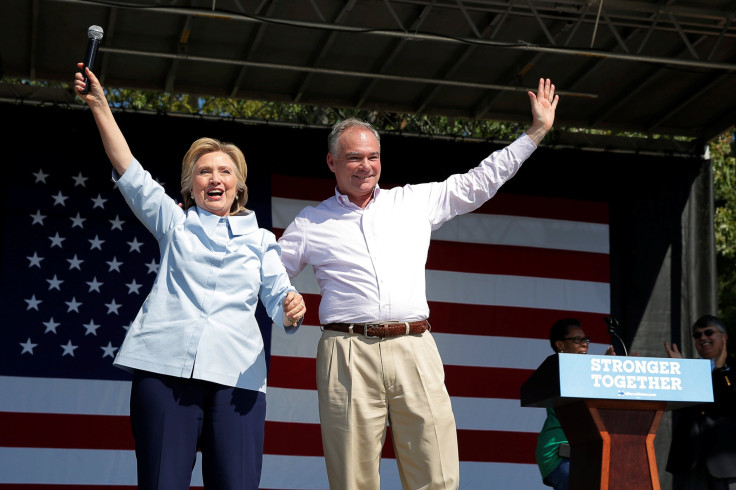Election 2016: Can Democrats Win The Senate?
While the focus for many Americans is on the presidential race between Hillary Clinton and Donald Trump, the fate of the 34 up-for-grabs Senate seats in November will arguably have more impact on the country.
According to Politico, the Democratic party is launching television ads in North Carolina and Missouri this week in the hopes of winning the in-play Senate seats in the traditionally Republican states. For Democrats, the 2016 election is an opportunity to win back control of the Senate. In the 2014 midterms, the GOP took control of the Senate for the first time since 2007, before Barack Obama was elected president, putting them in the driver's seat of both houses of Congress. Now Senate Democrats have a fighting chance to take the majority back, thanks in part to Trump.
Republicans currently hold 54 seats in the Senate, while the Democrats have 44, plus two independents, including Vermont Sen. Bernie Sanders, who caucus with them. Democrats need to net four seats among those 34 up-for-grabs seats, 24 of which are currently held by Republicans, to win a majority.
This is possible chiefly because the biggest factor determining how Senate elections will go in presidential election years is, well, the presidential election. Clinton, the Democratic nominee, is currently polling favorably against Trump, her GOP opponent, with a solid lead in most swing states. If that holds until November, it is likely to affect Senate races down the ballot, as most voters tend to vote by party affiliation. This is especially true in a year in which the Republican nominee has alienated traditional Republican voters as much as Trump has — dozens of Republican leaders have vowed not to vote for the businessman.
The four seats the Democrats need would likely come from some combination of Illinois, Wisconsin, Indiana, Pennsylvania, New Hampshire, North Carolina, Florida, Missouri, Iowa or Ohio. All of those races are still tight in the polls and could go either way depending on how things shake out over the next two months. Florida, Indiana, Pennsylvania, North Carolina, New Hampshire and Missouri are especially close, with Real Clear Politics labeling the races as toss-ups. Illinois and Wisconsin are leaning Democrat, while Ohio and Iowa are leaning Republican.
It is important to note that Democrats could very well lose the Democratic seat in Nevada held by current minority leader Harry Reid. Reid is retiring after this term and is leaving his seat to an effective toss-up race between Democrat Catherine Cortez Masto and Republican Joe Heck. If Democrats lose that seat, they will need to pick up a fifth seat elsewhere to claim a majority.
The strategy for the Democrats across the country has largely been to stay quiet and hope that Trump's polarization of the Republican party will result in big gains for the slightly more unified Democrats. In response to Trump, usually reliable Republican presidential donors, like billionaire brothers Charles and David Koch, have shifted their strategy to devote more money to down ballot races to try to mitigate the damage Trump might do to the party.
“If there was ever a national election. This is it,” Sen. Chuck Schumer of New York told Politico.

© Copyright IBTimes 2025. All rights reserved.






















